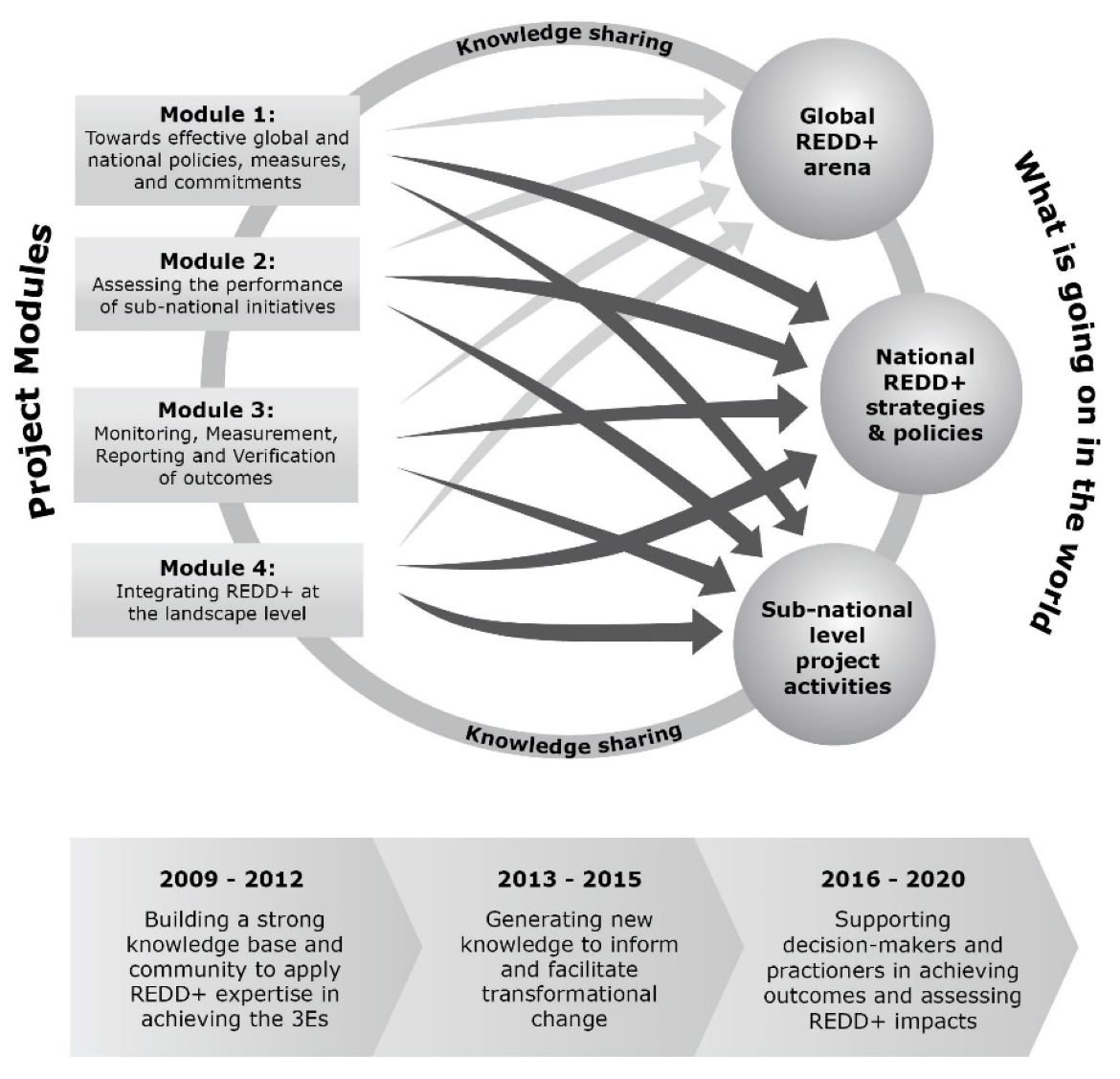
Global comparative study for achieving REDD+ results
Organization
Center for International Forestry Research (CIFOR)
The project works closely with research partners and stakeholders in all NICFI priority countries to ensure that REDD+ policy-makers and practitioner communities have access to and use the information, analysis and tools needed to design and implement REDD+; create enabling conditions; and assess to what degree REDD+ has delivered effective, cost-efficient and equitable carbon and non-carbon benefits.
Why
Understanding of what works and what doesn’t in the REDD+ policy arena is key for decision-makers; and the process of policy learning for improved REDD+ policy design, linked to global UNFCCC guidance and local projects, need evidence and knowledge brokers.
CIFOR envisions international REDD+ arrangements that generate significant financial resources to foster the transition from unsustainable land management practices in forests and forest margins towards environmentally sustainable management practice that improves rural livelihoods and that respects and strengthens social safeguards.
Research by our scientists and others continues to show that most large-scale deforestation is not driven by the value of the trees and forest resources harvested - deforestation continues because of demand for the land for conversion to various uses (e.g. agriculture, livestock, timber plantations, mining, infrastructure, habitation).
Furthermore, increasing land demand in developing countries is linked to population growth and increased per capita consumption of natural resources. In this context, our work is designed to contribute to REDD+ policy design, implementation and outcomes that improve the wellbeing of rural communities, including disadvantaged groups such as indigenous peoples and women, while conserving and enhancing forest carbon stocks and reducing land-based emissions.
CIFOR, in collaboration with the Overseas Development Institute (ODI, London), has completed the assessment on how well the Global Comparative Study (GCS) on REDD+ project has achieved its aim and how it could be improved. The evidence collected from this assessment suggests that a combination of research, policy engagement and practical support on the ground has been an effective approach to secure the impact of the project.
Budget
Norad intends to offer NOK 100 million in total for the period 2016-2020
What
In the REDD+ world, information is a currency and a source of power; and independent brokers for policy learning are needed to inform the political processes of evidence for change and to push for 3E policies (effective, efficient and equitable).
CIFOR will continue working closely with research partners and stakeholders, with a focus on selected NICFI priority countries.
In this new project we intend to enter a third phase, focusing on the assessment of policy design and actual impacts of REDD+ policies and measures as a basis to achieve REDD+ results.
We will expand the scope of our work and improve our capacity to respond to the evolving REDD+ policy process at the global level, assess the obstacles, nature and direction of transformational change and identify policies and on-the-ground actions that work.
The project continues to be structured into four research and one partner-centered knowledge sharing modules. The modulesare:
- Towards effective, efficient and equitable policies and measures at the national level
- Assessing the performance of sub-national and private corporate initiatives
- Forest Monitoring, Measurement, Reporting and Verification (MMRV)
- Integrating REDD+ measures with development goals at landscape level
- Sharing evidence and experiences
Expected results
New knowledge and information will be developed and will continue to support the agents of change to identify the root causes of deforestation and forest degradation and the constraints on sustainable forest management; and will inform the design and implementation of appropriate responses to these problems in an effective, efficient and equitable manner.
CIFOR and its partners will support countries in their move through the three phases of REDD+ – REDD+ readiness, policy reforms and result based actions –, by providing tools and analysis of how to design, implement and measure the results of REDD+ action.
Partners
CIFOR’s Global Comparative study on REDD+ has since 2009 developed partnerships with governmental, civils society and research partners and will take up new partnerships as appropriate over the lifetime of this 5-year research project.

About the project descriptions
The project descriptions give insight in the NICFI portfolio for civil society organisations supported by Norad.
The descriptions presented are written by the project partners. Only minor edits have been undertaken by Norad. Their presentations and conclusions do not necessarily reflect the views of Norad.
